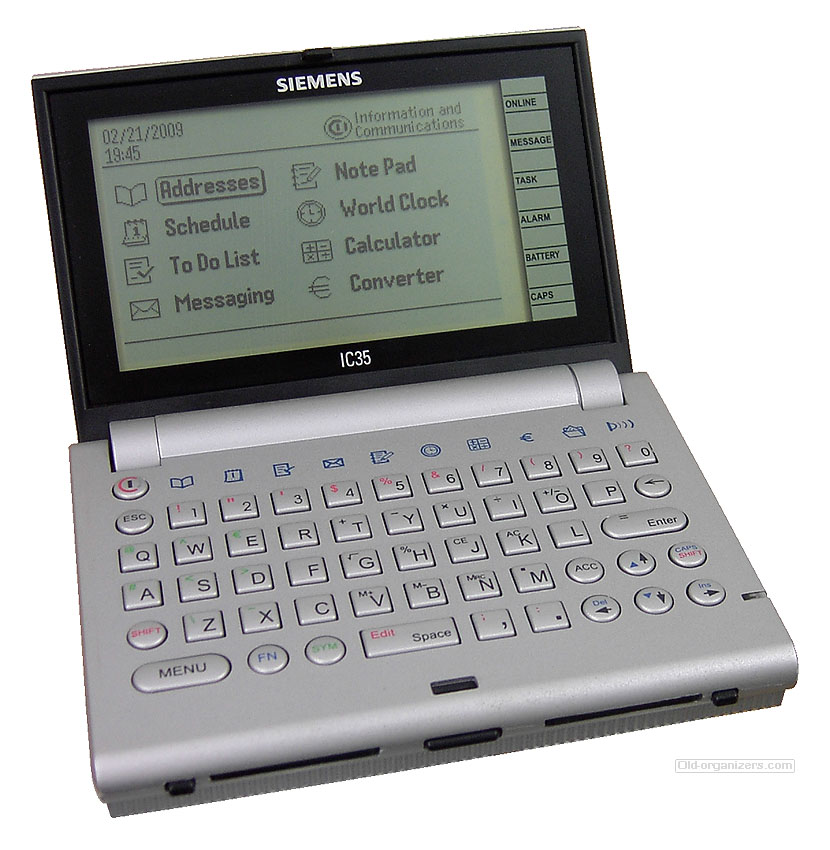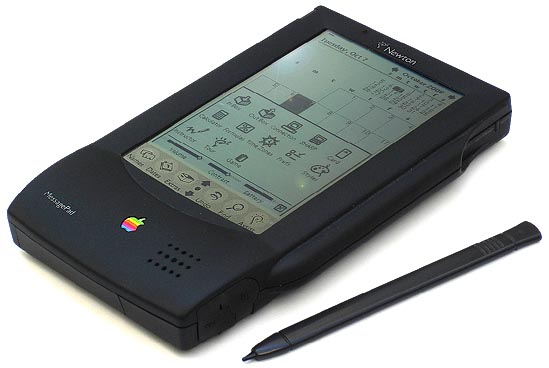Aww, the palm top era! I fondly remember these times! They started in the 90s, but became popular in early 2000!
Had a Palm m100 and also got a Handspring Visor later on.
I used to play several dozens of games on them. There was even a GameBoy emulator named Phoinix,
which ran on good ol' OS 3.5 and DragonBall processors! It was slow, but Pokemon Yellow looked so cool on it! 😁
There was also a Rayman game people were crazy about. I also played Space Trader on it (Privateer clone).
This was also the time I got heavily into emulation, it was possible to download the PalmOS from the Palm device
to the PC and use it with the official PalmOS Emulator (part of the free dev kit).
I think I was still using Win98SE at that time.
Later I also got several Pocket PCs. The first one I got was a HP Jornada 540 with a broken battery.
It had a metal case and was very well built. Replacing the battery was easy as pie.
And it ran a WinCE 3.0 version called "Pocket PC 2000" and I played several games on it and also listened to music
(hey it had a full featured Windows Media Player!) years before the iPod appeared! This was soo cool back then.
And later I even got an Compact Flash Wi-Fi card for it (WEP 64 and 802.11b only), but I had to search for older drivers,
because the Jornada used the ancient SH3 processor.
For those of you who don't know: PPC2000 was the last WinCE OS to support SH3, MIPS and ARM (yup, that ARM. Intel later made
the StrongARM, before giving up on it).Later versions solely used the "ARM" architecure, which originally stood for Acorn RISC Machines
(later the word "Acorn" was replaced by "Advanced", to hide the fact this technology didn't came from Intel, I guess).
So yes, old Pocket PCs and new fancy Android tablets do use the same processor that descents from a CPU made in the mid-80s.
Anyway, these Pocket PCs were quite powerful for their time, I think.
I was able to play NES,SNES and TG16 games on it using an multi-platform emulator named "Yame". 😁
There were also native games, using the GAPI architecure (Game API). One of them was a tron style game.
GAPI was a DLL you had to download and to copy into the Windows directory. Later versions shipped with it.
It was removed starting with Windows Mobile 5.0, which looked like early builds of Longhorn.
This was also about the time they split up Windows Mobile into the full "Pocket PC" version (aka legacy version)
and the "Phone" version. Anyway, it was still possible to install GAPI manually.
Another new, hot thing was the introduction of VGA resolution instead of QVGA (quarter VGA).
Older applications without support for this got scaled by the OS transparently (pixels doubled by 2x2).
But there were also other Pocket PCs I had. Like the Casio Cassiopeia E-500.
Another was a Compaq Aero, running on WinCE 2.11. It was cute and very lightweight.
It had the Win95 style GUI and several "Pocket" versions of popular MS products.
I remember that I hunted down an early MP3 software for it and made myself an 2.5mm audio adapter.
But the coolest thing I did was probably running a real emulation of DOS on it (I used PocketDOS with ROM-DOS).
Seeing Norton-Commander and Windows 3.x running on this cute tiny computer was soo awesome (there's even an official Win3.x mouse driver)!
I was excited just like people of today, when they see Windows 95 on a SmartWatch or an iPhone.

Here's a photo of PocketDOS running a copy of Gateway (awesome game, btw!)
Anyway, I hope I didn't get on your nerves with all that talking. 😅

Have some Neko as compensation. ^^
In case you're curious, here's some more stuff to check out:
Pocket PC
PocketDOS - Adds DOS compatibility to your Pocket Computer
http://www.pocketdos.com/
Total Commander for Pocket PC
http://www.ghisler.com/pocketpc.htm
freewarepocketpc.net
http://www.freewarepocketpc.net/
(good site, despite all the ads)
GAPI for Handheld PC’s
http://www.wincesoft.de/html/gapi_for_hpc_s.html
PalmOS
Phoinix, the free Gameboy emulator for PalmOS (archived)
https://web.archive.org/web/20160422025824/ht … ourceforge.net/
Phoinix at Sourceforge
http://sourceforge.net/projects/phoinix/files/
Palm Vx GB Emulator (Video of Phoinix)
https://www.youtube.com/watch?v=BAmOMdp4h4U
Emulators for PalmOS at zophar.net (incl. Phoinix)
http://www.zophar.net/palm-os/gb.html
Old school throwback: Play Space Trader, of Palm OS 2.0 fame
http://thenextweb.com/apps/2012/04/18/old-sch … alm-os-2-0-fame
Privateer Themed Palm Game Released
http://www.wcnews.com/news/update/5052
Neko for PalmOS
http://www.geocities.ws/dexhm/hb.html
Miscellaneous
Old Organizers Collection
http://old-organizers.com/index.htm
IC35 - The Unifier at old-organizers.com
http://old-organizers.com/MorePicts/MP183.htm
Rexpro PC card organizer
http://www.computerhistory.org/collections/catalog/102674732
http://www.computinghistory.org.uk/det/31455/ … Card-Organizer/
Btw, there were also other cool palmtop computer we shouldn't forget!
Like casio PocketViewer series and the Olivetti Davinci!
The PV series had an cool tiny OS and plenty of software for it.
It were popular long before the MS PocketPCs and had a fine, energetic community.
The Davinci was also an interesting little device (clip).
It was low priced, had an optional keyboard and even got an official Emulator for software development.
Also fascinating was the Rexpro organizer from Franklin. It was not only in the size of a PC Card, it WAS a PC Card.
The whole PDA could be inserted into the PC-Card slot of a notebook!
And then there was also the IC35 ("The Unifier") made by Siemens! It was essentially a tiny latop at the size of a pack of cigarettes!
It had one (or two?) MMC slots, a full keyboard and it was able to run self-written applications (*.app). The SDK was for free, aswell.
I was lucky to had one of these! I ran several games and a full blown BASIC interpreter on it (like GW-Basic).
Sadly I never had enough money to afford an Multi Media Card for it (this was before SD cards, back when 16MB cards were huge and expensive).
So I always had to use the docking station and remove apps when space was scarce.

"Time, it seems, doesn't flow. For some it's fast, for some it's slow.
In what to one race is no time at all, another race can rise and fall..." - The Minstrel
//My video channel//








